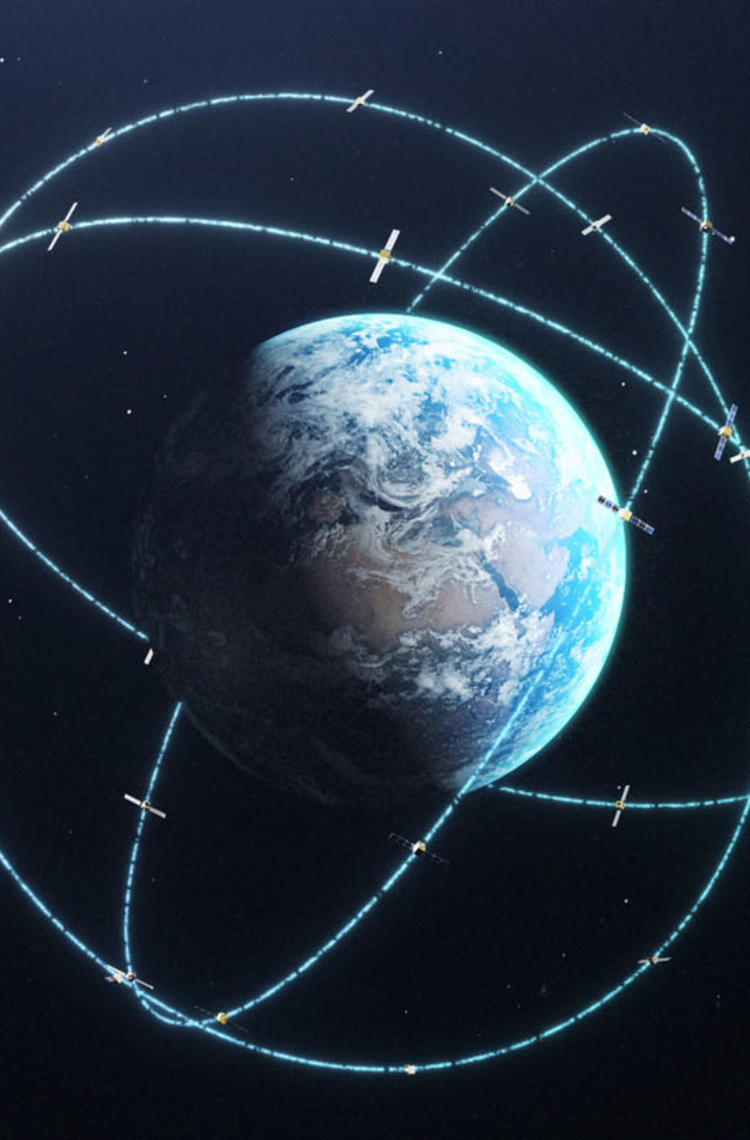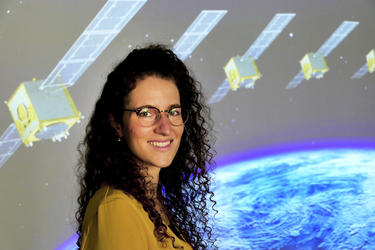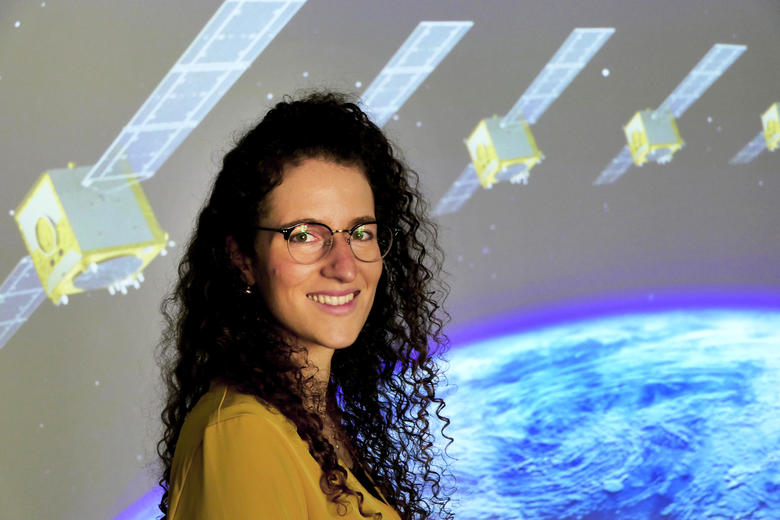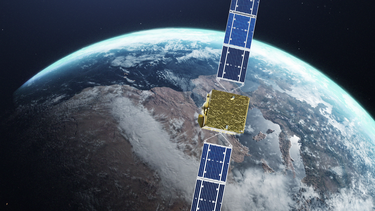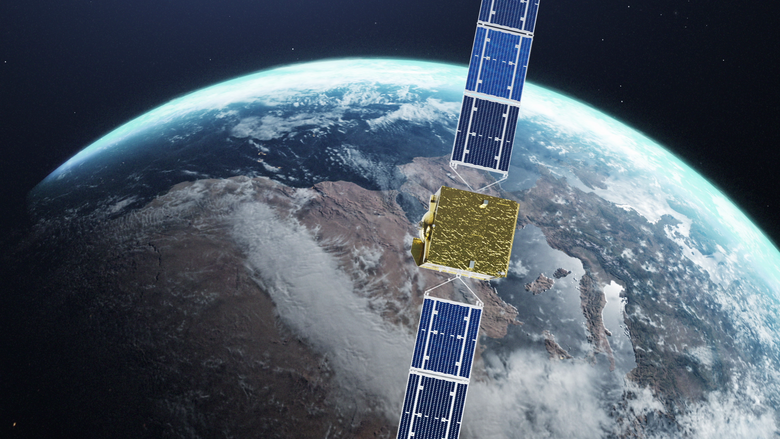Galileo is Europe’s very own independent satellite navigation system. Airbus engineer Alina Schiemenz is working on the next generation satellites designed to improve its performance – and enhance our well-being on Earth.
Most people may never get to see Alina’s work. But that’s ok, she says: “It’s much more important that the end-product serves and helps people on Earth.” The six second-generation Galileo satellites Alina is currently designing and developing with her colleagues will do just that – even if they cannot be seen with the naked eye.
Planned to be launched onboard an Ariane 62 rocket in 2024, the second-generation satellites will orbit some 23,222 km above us and enhance all services provided by the European Galileo satellite constellation that went live in 2016. By providing more accurate smartphone and in-car navigation, for instance, or more precise timing information for energy suppliers and high-frequency trading by banks. Enhanced Search and Rescue services will notify hikers or seafarers in distress that help is on the way after they have sent alert beacons.
The second-generation Galileo satellites will also open up new possibilities in the field of Emergency Warning Services (EWS), enabling civil protection authorities to warn the public at an early stage when volcanoes or earthquakes erupt, forest fires and tsunamis rage or terrorist attacks have been committed. “Such a satellite-based EWS could have had the potential to save many lives during the floods in Germany's Ahr Valley in the summer of 2021,” Alina says.
But why does Europe need its own satellite navigation system? Why not use GPS or other existing infrastructures? “Because Galileo allows Europe to remain at the forefront of satellite navigation while being independent from other nations’ infrastructure,” Alina explains. “In the current geopolitical context this is more important than ever for the safety of our economy and our well-being.”
For Alina, the second-generation Galileo satellites are a perfect example of Airbus’s commitment to NextSpace: the company's future-oriented focus to connect, protect, inform, explore and direct our lives on Earth. But to Alina NextSpace also means making satellite design and manufacturing more efficient and optimising the overall system so it is easier to use. That’s why the new satellites will be designed and assembled based on state-of-the-art building blocks from Airbus’ all-electric Eurostar Neo telecommunications platform.
Europe’s Galileo navigation satellite system
The future of navigation on Earth lies in space.
The satellites will feature new atomic clocks and digitally configurable antennas that will improve Galileo’s accuracy. Their fully electric propulsion system will allow sustainable orbit raising and new inter-satellite links will enable users to contact all satellites in the Galileo constellation via only a few gateway satellites. “This,” Alina explains, “will simplify the ground network as less ground stations will be needed to manage the constellation, making it more efficient.”
Working on satellites that support life on Earth is indeed very fulfilling, it never gets boring, she says: “In system engineering different tasks pop up frequently. This keeps it exciting every day, and allows me to learn all the time.”
